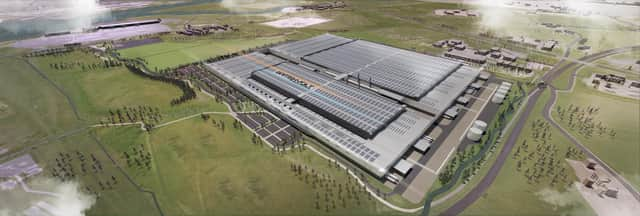Blyth battery plant could dwarf Nissan’s


The ‘Gigaplant’ proposals by Britishvolt for the former Blyth Power Station site, at Cambois, are scheduled to go before bosses at Northumberland County Council on Tuesday (July 6).
If approved, it is expected to directly pave the way for more than 3,000 jobs, plus the potential for thousands more in supply chain and other services, once it is fully up and running.
Advertisement
Hide AdAdvertisement
Hide AdA report for development bosses on the local authority’s strategic planning committee said: “The proposed Gigaplant will produce world class lithium-ion batteries with the first phase of the facility intended to be operational by 2023 and at full capacity by 2028.
“Once at full capacity, the Gigaplant will have a production capability of 30GWh, equating to approximately 300,000 electric vehicle battery packs each year intended primarily for the automotive industry.”
The £2.6 billion set aside to fund the scheme is believed to make it the biggest single industrial investment in the North East since Nissan set up shop on Wearside in the 1980s.
Earlier this week, the Japanese auto giant confirmed plans for a major investment in its Washington plant, including a factory by its manufacturing partner Envision AESC capable of making enough batteries to power up to 100,000 electric vehicles every year – a third of the capacity of the Britishvolt scheme.
Advertisement
Hide AdAdvertisement
Hide AdOnce production starts, the new Blyth factory is expected to run 24 hours a day, with the majority of staff on site working across three shifts.
The scheme has been backed by Choppington Parish Council, West Bedlington Parish Council and Blyth Town Council, while East Bedlington Parish Council hoped approval could pave the way for rail services to Cambois.
Comments from the public praised the prospect of regenerating an ‘industrial wasteland’, as well as creating jobs and instilling a ‘sense of pride for the local community’.
But some have also opposed the scheme, claiming the factory would look like a prison and would be better off in Teesside.
But experts at the county council’s planning department recommended the proposals, including a second application for energy infrastructure, be approved.